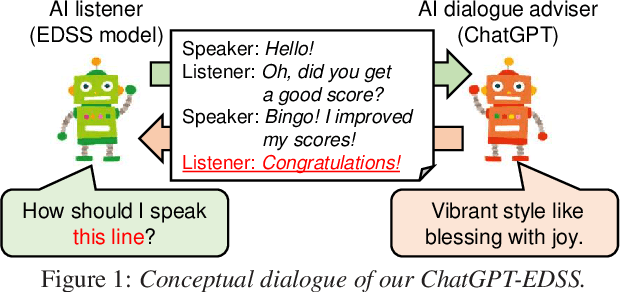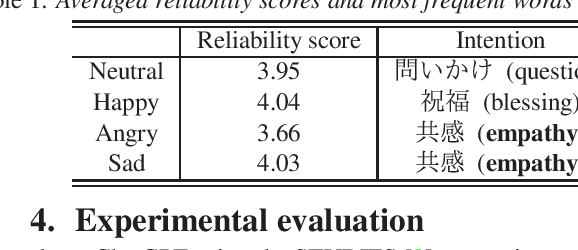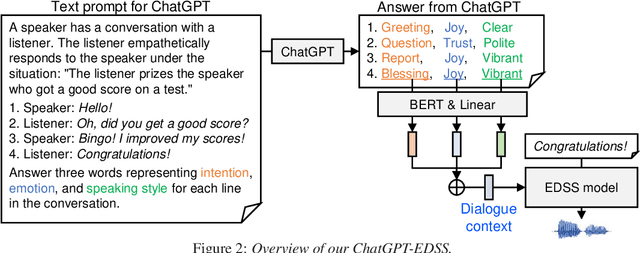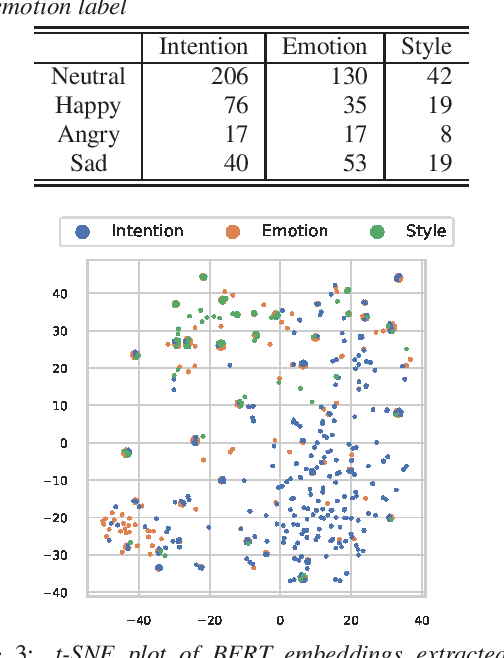Eiji Iimori
ChatGPT-EDSS: Empathetic Dialogue Speech Synthesis Trained from ChatGPT-derived Context Word Embeddings
May 23, 2023



Abstract:We propose ChatGPT-EDSS, an empathetic dialogue speech synthesis (EDSS) method using ChatGPT for extracting dialogue context. ChatGPT is a chatbot that can deeply understand the content and purpose of an input prompt and appropriately respond to the user's request. We focus on ChatGPT's reading comprehension and introduce it to EDSS, a task of synthesizing speech that can empathize with the interlocutor's emotion. Our method first gives chat history to ChatGPT and asks it to generate three words representing the intention, emotion, and speaking style for each line in the chat. Then, it trains an EDSS model using the embeddings of ChatGPT-derived context words as the conditioning features. The experimental results demonstrate that our method performs comparably to ones using emotion labels or neural network-derived context embeddings learned from chat histories. The collected ChatGPT-derived context information is available at https://sarulab-speech.github.io/demo_ChatGPT_EDSS/.
CALLS: Japanese Empathetic Dialogue Speech Corpus of Complaint Handling and Attentive Listening in Customer Center
May 23, 2023Abstract:We present CALLS, a Japanese speech corpus that considers phone calls in a customer center as a new domain of empathetic spoken dialogue. The existing STUDIES corpus covers only empathetic dialogue between a teacher and student in a school. To extend the application range of empathetic dialogue speech synthesis (EDSS), we designed our corpus to include the same female speaker as the STUDIES teacher, acting as an operator in simulated phone calls. We describe a corpus construction methodology and analyze the recorded speech. We also conduct EDSS experiments using the CALLS and STUDIES corpora to investigate the effect of domain differences. The results show that mixing the two corpora during training causes biased improvements in the quality of synthetic speech due to the different degrees of expressiveness. Our project page of the corpus is http://sython.org/Corpus/STUDIES-2.
 Add to Chrome
Add to Chrome Add to Firefox
Add to Firefox Add to Edge
Add to Edge